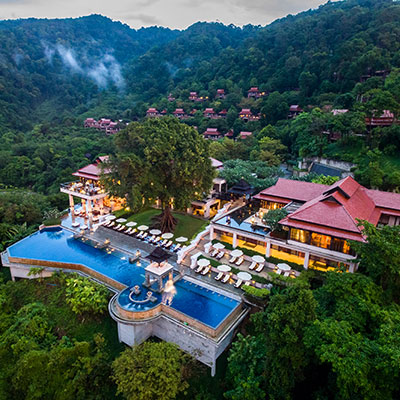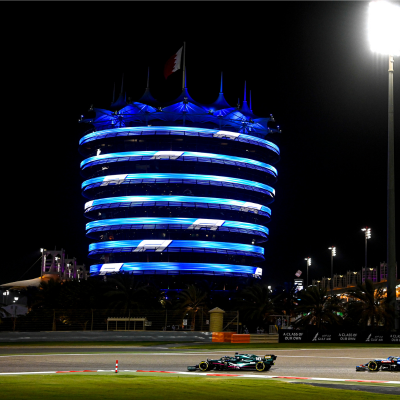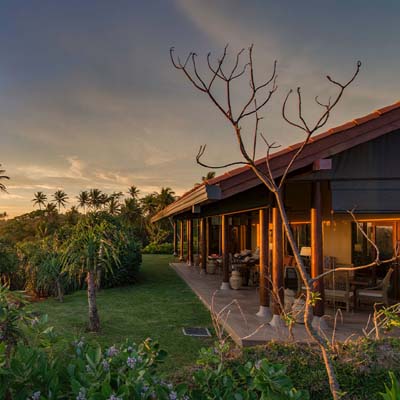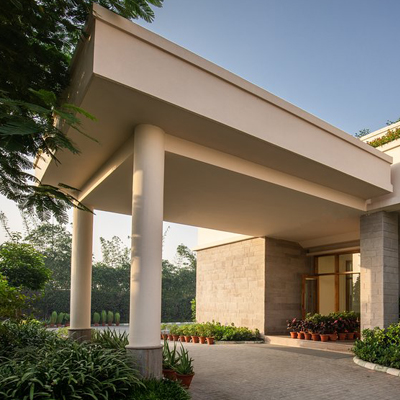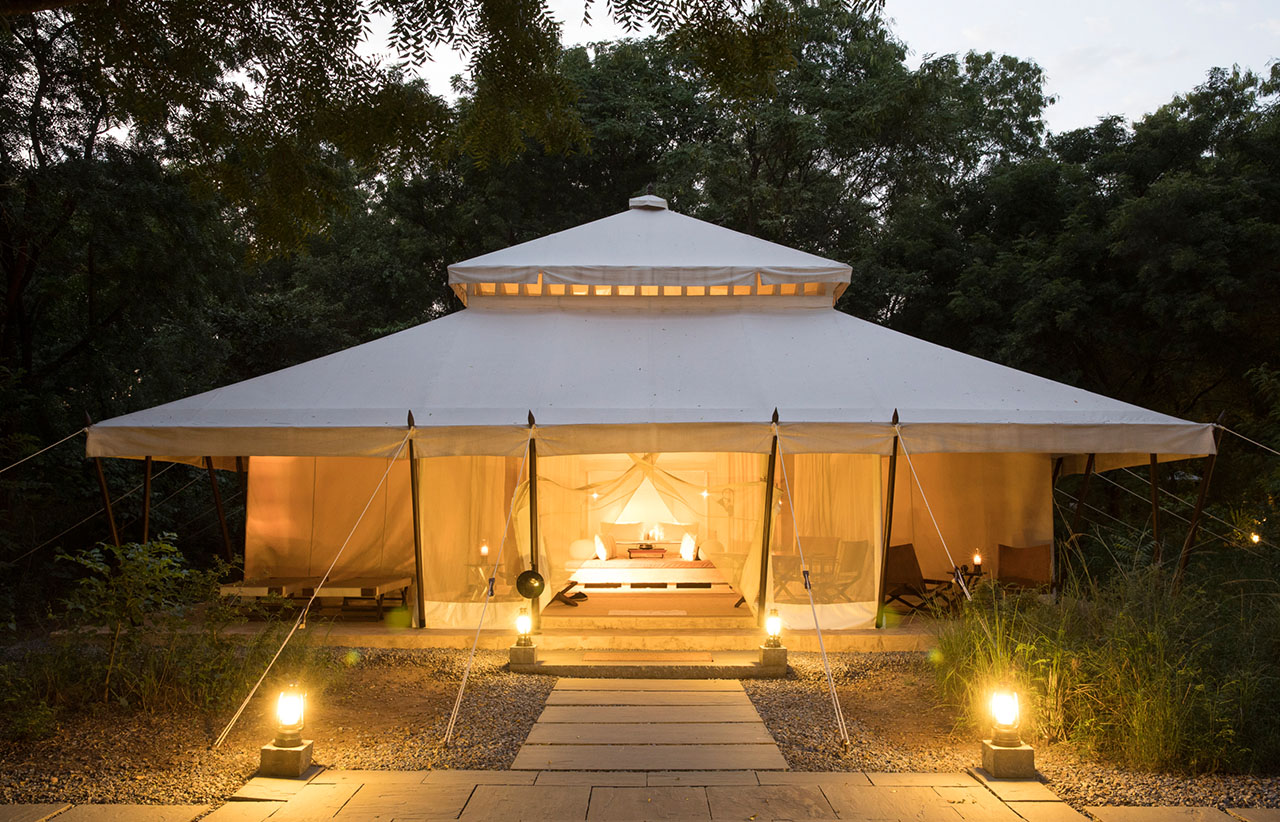
When it comes to luxury in the hospitality segment, the one name that perhaps rings the loudest bell is the Aman. Positioned around the idea of uber-luxury bespoke experiences, the chain operates 33 hotels and resorts across the world. India figures hot on the group’s existing and future maps, with two already operational properties and quite a few on the drawing boards. The two existing properties, Aman-i-Khas and Amanbagh, both in Rajasthan, the chain is already a top favourite among the super-rich, experience seeking travelers , attracting patrons from across the world.
Aman-i-khas in Sawai Madhopur is about 10 Mughal-tents on the edge of Ranthambhore Forest. On the other hand, Amanbagh is an oasis of comfort and relaxation with a focus on Ayurveda in Alwar, Rajasthan. The brand, synonymous with experiential travel, has an exclusive fan base of loyal travellers who call themselves as Aman Junkies. The hotel doesn’t believe in advertising and has no loyalty programmes. The Luxe Café caught up with Anand Shekhawat, general manager, Aman India and regional director- India, Sri lanka and Bhutan to know more about brands functioning in Indian market, its future plans and the working style post covid. Excerpts:
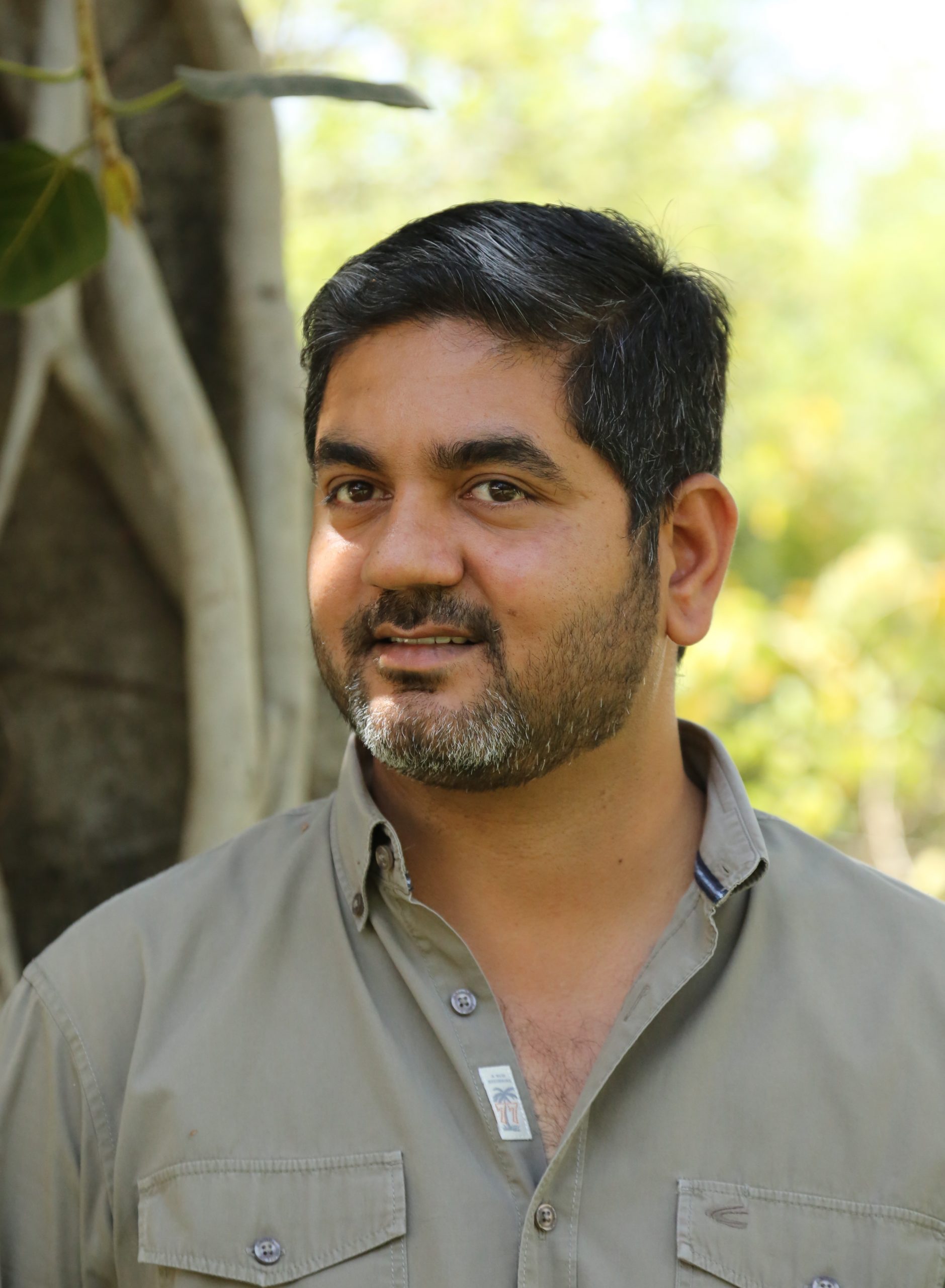
TLC: We were going through some corporate announcements of the group from about 10 years back. These suggested some very aggressive expansion plans in India. Why don’t we see many more Amans yet?
AS: The brand Aman is symbolic of very niche equity. The defining philosophy of the group is that there can be absolutely no dilution or compromise on brand equity, even if it slows down any expansion plans. Look at our properties across the world. They all have a story to tell. We don’t want to delve into expansion for the sake of a number. We are about an experience.
“For us, the purpose is stronger than the numbers. Think of this – we could have added 15 more tents at Aman-i-Khas and would have still made more money.”
TLC: So we can safely say that Aman is very cautious when it comes to expanding?
AS: Yes. Like I said, Aman is about creating experiences and does not create repetition of an asset. For example, we can’t open a place everywhere there is a tiger reserve, unless it offers unique experience to the guests.
For us, the purpose is stronger than the numbers. Think of this – we could have added 15 more tents at Aman-i-Khas and would have still made more money. We cannot go to every place which is touristy otherwise we would have been in Maldives long back.
We have a set of followers who call themselves Aman junkies and that’s for a reason — They believe in us. They look for little architectural cues, know for a fact that they would be allowed to interact with local communities with a bit of caution and experience the purest of the country. This is what Aman allows the guests to do, and while expanding we need to careful of that.
“We have been looking into India extensively. We are focusing on Central UNESCO heritage sites to develop Aman hotels. We have some assets in thoughts which are very unique and beautiful. We are currently looking at right partners and hope to soon have more hotels in India,” says Anand Shekhwat.
TLC: Could you point out at some key ideas you look for while expanding?
AS: Space, location and purpose are the three important things we look for while expanding, doesn’t matter how remote the location is or how city it is. If we can be at the Otemachi tower in Tokyo or at the 5th avenue in New York and at Nai Lert in Bangkok, we could be anywhere in the world.
We have been looking into India extensively. We are focusing on Central UNESCO heritage sites to develop Aman hotels. There are some assets in thoughts which are very unique and beautiful. We are currently looking at right partners and hope to soon have more hotels in India.
TLC: That brings us to the existing properties. Could you point out some key factors that define the two existing Amans in the country?
AS: At both properties, maximum produce for the kitchen comes from in-house organic farms. Also, both emphasize on sourcing and engaging local communities. For example, Aman-i-Khas sources herbs and vegetables that are not grown at the camp from the neighboring villages, such as chillies from chhan and coriander from kota. This also ensures the quality and freshness of the product.
The hotel also trains the villagers nearby on the benefits of using the right technology, whether it’s for high yields or better crop survival or composting process. Besides using solar power to generate maximum energy, Aman-i-Khas has been working on zero waste policy – whatever comes in the camp, doesn’t go out, we try to utilize it.
TLC: What is the USP of Amanbagh and Aman-i- khas?
AS: Aman Bagh is an oasis of mature palm trees aligned with wellness to rejuvenate. It has an ayurveda center along with a medicine manufacturing unit. While Aman-i- Khas is about 10 tents in the middle of the wilderness. From the comforts of your tent, you are always camping.

TLC: At least at the face of it, it appears that till 2019 the primary clientele of Aman in India has been the super-rich foreign traveller. In the post Covid world, are you modifying some of your experiences to cater more specifically to the Indian traveler?
AS: We provide experiential travel, and not necessarily just to foreigners. Indian market had been contributing to Aman internationally. But people would never consider an experiential travel within the country. India was just for a vacation, may be time-out with family but for taking experiences, it was always international.
Our market share of India was 8 per cent pre covid, who were generally repeaters and when the border closed I thought I would be chilling out by the pool, sipping margaritas for some time. But that never happened. We aligned ourselves to the market and reached out to our travel partners. Though we do not really do any marketing, or sell ourselves at online travel agencies. We followed strong protocols in disinfecting tents and made sure of other safety measures.
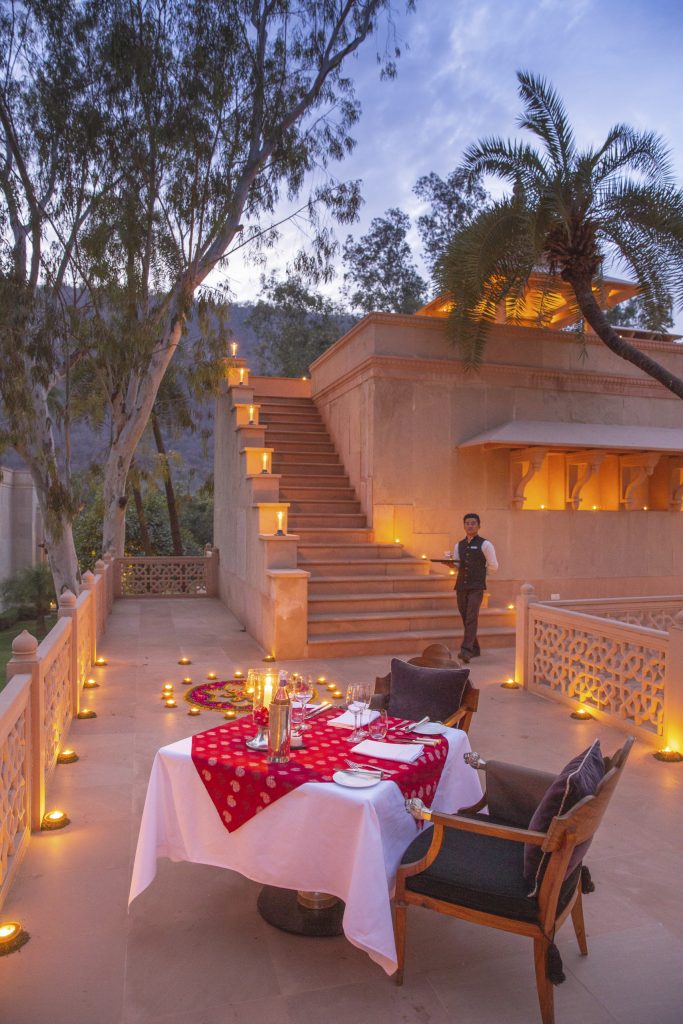
Another reason of our smooth sailing is food. Hand-picked home grown herbs and vegetables to prepare dishes as per individual preferences have worked for us, especially in Ranthambhore. People really appreciate the freshness and the taste of the food. It’s not something you would find in a restaurant, its simple “ghar ka khana”. It’s actually secret of our success.
TLC: Being in an administrative role, how do you manage both properties?
AS: At Aman, we are all one family. One thing I always feel is you have to be contributing rather than being enforcing and micromanaging. When you have great people to work for, you don’t have to micro-manage. All you need to do is to ensure their creativity comes out as well.





